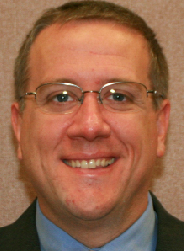If you are a sleep specialist and fearful of losing relevance and revenue, then listen up. Marketplace longevity comes from consistently doing right. Doing right requires clearly defined values and a commitment to adhere to them.
Unfortunately, discussions regarding ethics are conspicuously absent in sleep medicine. A literature search on PubMed for [ethics and “sleep medicine”] revealed a whopping 19 publications ever—a third of which were entirely unrelated to sleep medicine. A review of the three most recent (2011-2013) SLEEP meeting abstract books revealed not a single submission related to ethics. Excepting a few minutes on celebrity deaths, I cannot recall a single discussion focusing on ethical behavior in sleep medicine at any of the major US sleep conferences.
Why Ethics in Sleep Medicine?
Yet every day, ethical behavior is at the core of medical practice. Even the routine clinical decisions of sleep specialists are replete with ethical implications. And these decisions take place in the unique context of a patient-provider interaction, in which patient trust renders them vulnerable. In other areas of sleep medicine, more transparent controls exist to protect the public. For example, research institutional review boards are assigned the protection of human subjects. In scientific publication or education, authors are required to disclose potential conflicts of interest. But in clinical practice, there are few controls and virtually no practical oversight. It is incumbent on sleep specialists to be self-aware regarding potential influences on their decision-making and to adjust their behavior accordingly.
Everyday Ethical Decisions
Below are several routine clinical situations encountered by sleep specialists. In each instance, patients are vulnerable because of the trust they place in their providers. Ask yourself and consider:
- Do I advise of non-inferiority of home sleep testing (HST) for patients without medical complications and high suspicion of moderate-severe obstructive sleep apnea (OSA) or consider patient preference when recommending in-lab polysomnography (PSG)? There are many reasons why an in-lab study might be a preferred diagnostic pathway for a given patient. But personal financial gain should not drive this decision. Likewise, cost savings alone should never supersede sound medical decision-making.
- Do I ensure informed consent when recommending a PAP trial for patients with mild or moderate OSA, including discussing a range of treatment options such as oral appliance therapy or lifestyle intervention? Most sleep medicine physicians view PAP as the default treatment of choice for all patients, largely because PAP is the most efficacious treatment for OSA but at times because of financial gain from in-lab titrations. Ethical behavior demands that providers inform patients of their treatment choices. The irony is most patients will choose a trial of PAP for their OSA when presented a balanced summary of the evidence. And patients who actively choose their treatments experience improved adherence and health-related outcomes.
- Do I ensure informed consent and closely monitor patient response when prescribing hypnotic sleep aids? Too often, when treating insomnia, sleep medicine providers rush to pharmacotherapy without understanding the cause of a patient’s sleep complaints, only to “get that difficult patient out of the office.” Do you discuss the pros, cons, and risks of prescription sleep aids? Do you administer behavioral strategies or refer for formal CBT? At minimum, do you require insomnia patients to complete sleep diaries?
- Could my clinical decision-making be impacted by financial gain from a sleep laboratory, DME company, or other related entity? For most sleep specialists, the answer to this question is “yes.” Recognize your potential conflicts, and remain vigilant to avoid them. When in doubt, seek a second opinion from a colleague.
A Litmus Test for Leaders
Here’s a good litmus test to evaluate your own behavior: Ask yourself if you’d want someone treating a family member of yours in the same manner.
Consider: If a parent, child, or loved one were being tested or treated for a disease, would you want his medical provider directing toward a pathway without considering all possible options? Or worse, directing down a more expensive or invasive pathway, which resulted in financial gain to the provider…when a less costly but equally effective option were available?
Avoiding Past Mistakes
For two decades, clinical sleep medicine was somewhat myopically focused on diagnosing OSA, too often with little regard for the patient’s long-term adherence, satisfaction, or outcomes. Indeed, the single biggest reason sleep medicine exploded as a field was the huge financial profitability of the in-lab PSG.
Few inside the sleep medicine community openly questioned this PSG mantra, and this inaction was in part an abdication of ethical responsibility. More importantly, it accelerated the painful decline in reimbursements and transition to HST. Not surprisingly, the quandary currently facing the field is largely the result of ethical conversations that never took place.
Final Word
What is legal and what is ethical are not the same. As sleep medicine transitions to a chronic care/disease management specialty with an emphasis on patient-centered care, it will be especially important to have a clear set of patient-centered values to avoid even the appearance of impropriety.
The future of sleep medicine is bright. As a leader, speak with your colleagues and clarify your values. Then let your values guide your behavior, and you will do well by doing right.
Emerson M. Wickwire, PhD, is sleep medicine program director at The Howard Center for Lung and Sleep Medicine in Columbia, Md, and assistant professor at Johns Hopkins School of Medicine. His hard won insights into leadership, character, and ethical behavior were learned over two decades on the wrestling mats, as both a former NCAA Division I collegiate athlete and successful high school wrestling coach. CONTACT [email protected]




